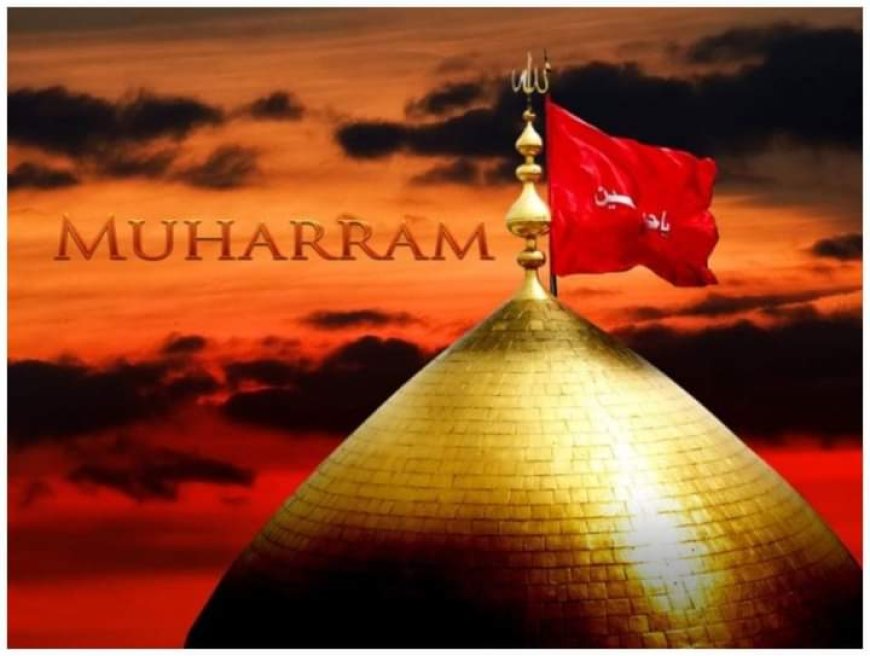In memory of #Hussain
I grew up playing banaithi, a game involving a stick with wooden bowls at its ends, while chanting couplets to honor Hussain. As a child in my village, which was home to both Hindus and Muslims, I never felt that Muharram was exclusive to Muslims. My grandmother would sing a song, "De re Daadi lawang ke chharia main chaloon Karbal ko," about Hussain asking his grandmother for a piece of clove before heading to the battlefield of Karbala.

Later in life, at university, I delved into literature and discovered the heroic figure of Hussain—the young, handsome, and charismatic son of Ali. I enjoyed reading numerous 'shers' (couplets) about him. To me, Hussain symbolizes love in times of hatred. Here, I share what my writer friend Rakhshanda Jalil has written about him:
"Hussain’s resistance to the tyranny of Yazid is emblematic of the suffering of all those who live under oppressive regimes that seek to suppress the human spirit and stifle resistance," as captured in this sher by Shabnam Naqvi:
"Phir Yazid-e-asr ke ab haath mein talvaar hai
Phir Husain-ibn-e-Ali ka tazkira karte raho"
(Once again the vile Yazid holds the sword in his hand
Once again just remind yourself of Hussain, son of Ali)
And in this one by Ahmad Faraz:
"Jab bhi zameer-o-zarf ka sauda ho doston
Qaaem raho Husain ke inkaar ki tarah"
(Whenever there is a trade of heart and conscience
Remain resolute like Hussain’s refusal)
Every age produces its Yazid and Hussain, and every epoch witnesses a Karbala, as expressed by Faiz Ahmad Faiz:
"Har daur mein maluun shaqawat hai Shimar ki
Har ahd mein masood hai qurbani-e-Shabbir"
(Every era has the accursed villainy of (Yazid’s general) Shimar
Every age is blessed by the martyrdom of Shabbir)
In the lamentation and mourning over the King of Karbala, the Martyr of Martyrs, the Son of Ali, personal and localized griefs are subsumed in the universal grief for Hussain (also known as Shabbir, a pet name given by Prophet Muhammad) and his family. North India, particularly the qasbahs of Awadh, has produced a vast amount of poetic literature commemorating the martyrdom of Hussain. Urdu poets such as Mir Anees, Dabir, and Gauhar Lukhnavi have written hauntingly evocative elegies, recited in homes and majlis khanas during Muharram. These elegies recall the slaughter of innocents and infants. Contemporary poets continue to reference Hussain and Karbala, as seen in this sher by young Lucky Farooqi Hasrat, who views Hussain as an intercessor:
"Dua-e-ḳhair ki phir kya kamii hai
Dua-go jab Husain ibn-e-Ali hai"
(There is no dearth of prayers for well-being
When the well-wisher is Hussain, son of Ali)
P.S. I am a Hindu by birth, faith and practice, but I revere Hussain as much as Abhimanyu from the Mahabharata.
------------------------------------------------------------------------------
by Ali Nadeem Rezavi / Rizwan Raza

 Yash Saini
Yash Saini 





